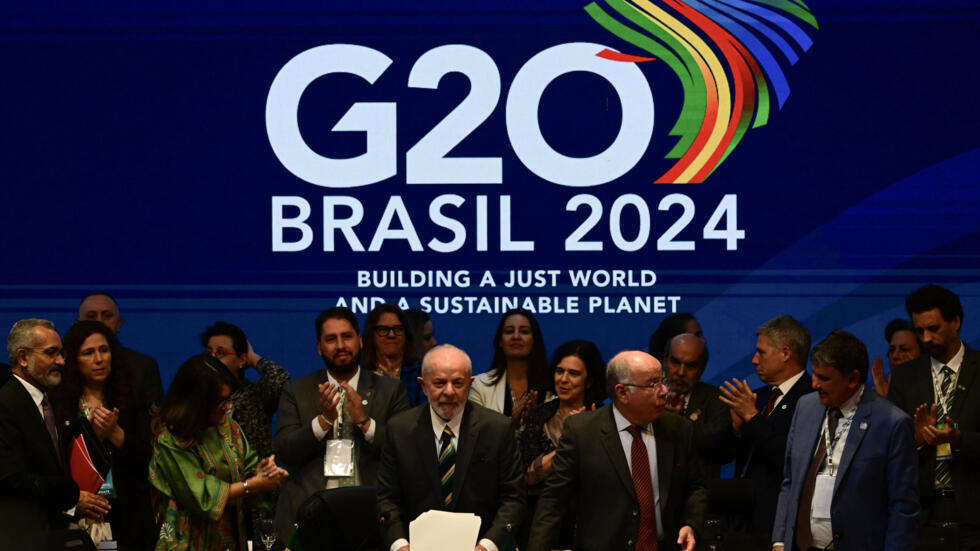Tanzania’s participation in the 2024 G20 Summit marks a transformative moment for the nation, positioning it as a key advocate for global equity and sustainability. As the world grapples with challenges like economic disparity, climate change, and shifting geopolitical dynamics, Tanzania has a unique opportunity to influence key discussions.
With a focus on ‘Building a Just World and a Sustainable Planet,’ Tanzania aims to bridge divides between developing nations and global powers, ensuring that voices from the Global South are heard.
World Divergence vs. Convergence: Tanzania’s Strategic Position
The global policy arena remains sharply divided between divergent and convergent governance, development, and diplomacy approaches. For developing nations like Tanzania, these differences present both challenges and opportunities:
Convergence Policies: Shared Goals and Cooperation
Climate Action: Global consensus on combating climate change offers Tanzania a platform to push for increased climate financing and technology transfer.
Sustainable Development: The alignment with UN Sustainable Development Goals (SDGs) reinforces Tanzania’s agenda in poverty reduction, gender equity, and education.
Technology Transfer: Initiatives for digital transformation and industrialization provide avenues for collaboration.
Divergence Policies: Points of Friction
Economic Inequalities: Wealthier nations often prioritize self-interest, creating barriers to equitable trade and debt management.
Geopolitical Rivalries: Superpower competition threatens the unity needed to address global challenges.
Climate Commitments: Delayed or insufficient climate financing disproportionately impacts low-income nations (LDNs).
This intersection of divergence and convergence is not just rhetorical; it highlights systemic gaps that African nations must address. These gaps risk perpetuating global inequalities unless actively confronted with innovative and collective strategies.
Tanzania’s Homework: Challenges and Opportunities
Opportunities to Build Resilience
Economic Diplomacy: President Samia’s proactive economic diplomacy has rebranded Tanzania as a gateway for investments in agriculture, energy, and infrastructure. Through G20 engagements, Tanzania can secure equitable trade partnerships and boost regional integration.
Climate Advocacy: As a nation vulnerable to climate change, Tanzania has a unique role in amplifying the needs of the Global South. Leveraging the G20 to push for actionable commitments on climate financing can bridge the climate action gap.
ALSO, READ: The Interplay of People, Politics, and Change: Insights into Tanzania’s Transformation
Digital Transformation: Tanzania’s growing ICT sector aligns with global aspirations for digital equity, offering opportunities for technology partnerships and innovation hubs.
Challenges to Overcome
Debt Vulnerability: Tanzania’s access to G20 loans must be balanced with sustainable debt management to avoid fiscal instability.
Trade Disparities: Despite open markets, non-tariff barriers often hinder Tanzania’s exports from competing in global value chains.
Unequal Power Dynamics: Dominance by High Developing Nations (HDNs) within the G20 often sidelines the voices of LDNs, necessitating collective African advocacy.
Lessons from Tanzania’s Leadership Continuity
The continuity in Tanzania’s engagement with global platforms, from Presidents Mkapa and Kikwete to President Samia, underscores a national vision rooted in global cooperation:
Mkapa’s Era: Advocated debt relief and fair trade, laying the foundation for economic recovery.
Kikwete’s Tenure: Focused on infrastructure and health, leveraging global partnerships to meet pressing needs.
Samia’s Leadership: Advances economic diplomacy, climate advocacy, and inclusive development, redefining Tanzania’s global role.
These leaders exemplify Tanzania’s evolving strategy to maximize benefits from global cooperation while mitigating vulnerabilities.
Strategic Recommendations for Tanzania’s G20 Engagement
Strengthen Alliances within the Global South: Build coalitions with the African Union and like-minded nations to amplify collective bargaining power in global forums.
Enhance Debt Sustainability: Advocate for concessional financing and debt restructuring mechanisms tailored to LDNs’ needs.
Champion Inclusive Decision-Making: Push for equitable representation of African nations within the G20 and other global governance bodies.
Prioritize Technology Partnerships: Facilitate affordable access to advanced technologies by negotiating favourable terms on intellectual property rights.
Amplify Climate Financing Advocacy: Mobilize G20 commitments to bridge the climate financing gap and implement Tanzania’s Nationally Determined Contributions (NDCs).
Invest in Domestic Capacities: Develop institutional frameworks to effectively implement and monitor global agreements, ensuring they translate into tangible local benefits.
Tanzania’s Role in a Just and Sustainable Future
Tanzania’s participation in the G20 is not merely a ceremonial act; it is a strategic move to influence global policies that align with its aspirations for equity, sustainability, and resilience.
While the interplay of divergence and convergence in global policies presents challenges, under President Samia Suluhu Hassan, Tanzania’s proactive leadership can turn these into opportunities.
Tanzania is poised to contribute to a more just world and a sustainable planet by addressing systemic inequalities, championing climate action, and fostering inclusive representation. This journey requires courage, innovation, and unwavering commitment—qualities that Tanzania continues to embody on the global stage.
Conclusion: Bridging Global Divides Through Strategic Diplomacy
Tanzania’s engagement with the G20 represents a pivotal moment in its quest to assert its role in shaping global policies and advancing its national development agenda. The interplay between convergence and divergence policies among nations underscores the complexities of global governance, especially for Low Developing Nations (LDNs) like Tanzania.
This landscape is not merely a rhetorical phenomenon but a structural reality that often magnifies inequalities between LDNs and High Developing Nations (HDNs).
However, Tanzania’s strategic approach—rooted in economic diplomacy, climate advocacy, and the pursuit of equitable global representation—highlights its potential to bridge these divides.
Through lessons from past leadership and President Samia’s vision, Tanzania is demonstrating that even smaller nations can leverage global platforms to achieve transformative outcomes.
To succeed, Tanzania must prioritize sustainable financing, equitable partnerships, and innovation while amplifying its voice within the Global South. By turning challenges into opportunities, Tanzania can champion the aspirations of African nations, advocating for a just world and a sustainable planet.
In essence, Tanzania’s G20 engagement is not just about participation—it is about reshaping narratives, influencing policies, and ensuring that the future global order is inclusive, equitable, and sustainable.
The homework for Tanzania, and Africa at large, is to solidify their positions as key players in global governance, ensuring their development agendas align with global solutions to shared challenges.

